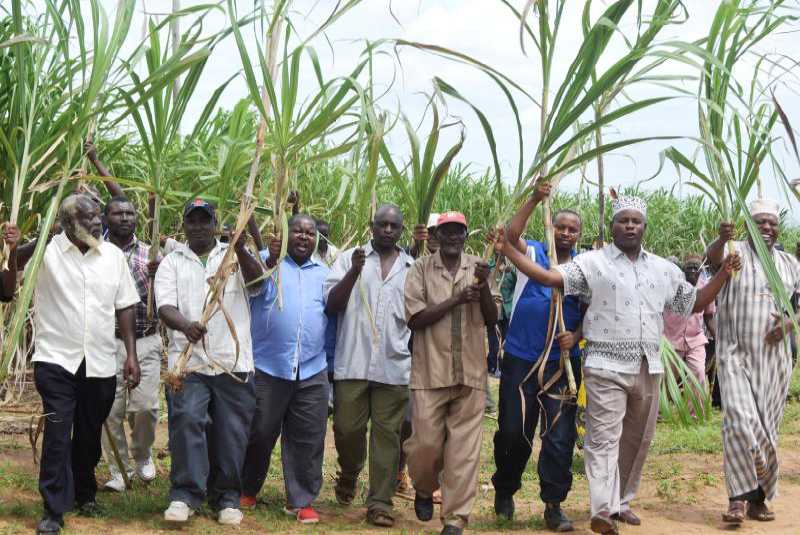
Some of the more than six hundred Sugar cane out growers in Kwale County carry some pieces of sugar canes as they protest in one of the farms at Ramisi over the closure of Kwale International Sugar Company Limited (KISCOL) which buys their farm produce, July 28, 2018. The out growers farmers said the sugar processing firm was closed by the government after they took three sacks of sugar for testing. [PHOTO: GIDEON MAUNDU/STANDARD].
An order to destroy contaminated sugar may open up the Government to penalties after a sugar firm contested test results condemning its brown sugar.